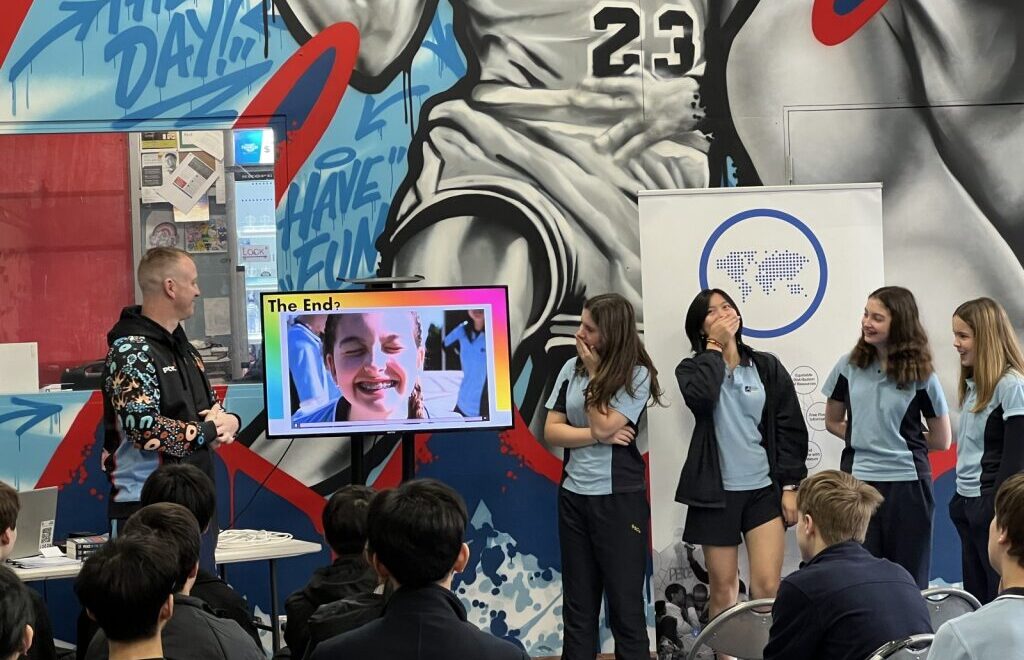The event, hosted at PCYC City of Sydney, recognised the accomplishments of students from three schools: Alexandria Park Community School, Sydney Secondary College Leichhardt Campus, and Conservatorium High School.
The project centred around the application of IEP’s Positive Peace Framework, a model designed to build and maintain peaceful societies. Students used this framework to develop and implement community-focused initiatives. Multicultural NSW provided support to bring these projects to fruition. The youth-led peace projects covered a diverse range of approaches to encouraging social cohesion:
• A volunteer-run cafe, which is providing opportunity for student skills development and aims to create a space for community interaction and engagement.
• Educational content on TikTok, utilising social media to spread awareness about topics that are important and relevant to students.
• ‘Dignity packs’ to support people experiencing homelessness in the community.
• A mural with sport and peace as its central theme, bringing art into public spaces to promote reflection on social harmony.
• A documentary exploring the connection between social cohesion and nature, highlighting the importance of environmental awareness in building peaceful communities.
Throughout the program, students were encouraged to take on leadership roles. This hands-on experience allowed them to apply the principles of Positive Peace in real-world scenarios. IEP’s Pillars of Positive Peace, which include factors such as Well-Functioning Government, Equitable Distribution of Resources, Free Flow of Information, and Acceptance of the Rights of Others, served as guiding principles for the students’ work.
The completion of these projects represents tangible contributions to building Positive Peace within the local community. By engaging in these initiatives, students gained practical experience in community organising, project management, and social impact assessment. They also developed a deeper understanding of the complex factors that contribute to peaceful societies.

The ceremony served not only as a celebration of the students’ achievements but also as an opportunity to reflect on the lessons learned throughout the program. It highlighted the potential of youth-led initiatives in addressing social issues and promoting community cohesion.
Programs like the Cohesive Communities COMPACT Partnership demonstrate the value of collaborative efforts between educational institutions, community organisations, and government bodies in nurturing the next generation of community leaders. By providing students with the tools and frameworks to understand and address social challenges, such initiatives aim to create a ripple effect of positive change within communities.
As the program concludes, the impact of these projects extends beyond their immediate outcomes. The skills and knowledge gained by the participating students will inform their future endeavours and perspectives on community engagement and social responsibility. The projects themselves also serve as examples of how young people can actively contribute to building more peaceful and cohesive societies.
The success of this program underscores the importance of empowering youth to take an active role in shaping their communities. It also highlights the potential of the Positive Peace Framework as a tool for guiding concrete action towards social improvement at the local level.
Discover more about IEP’s training and education programs here.